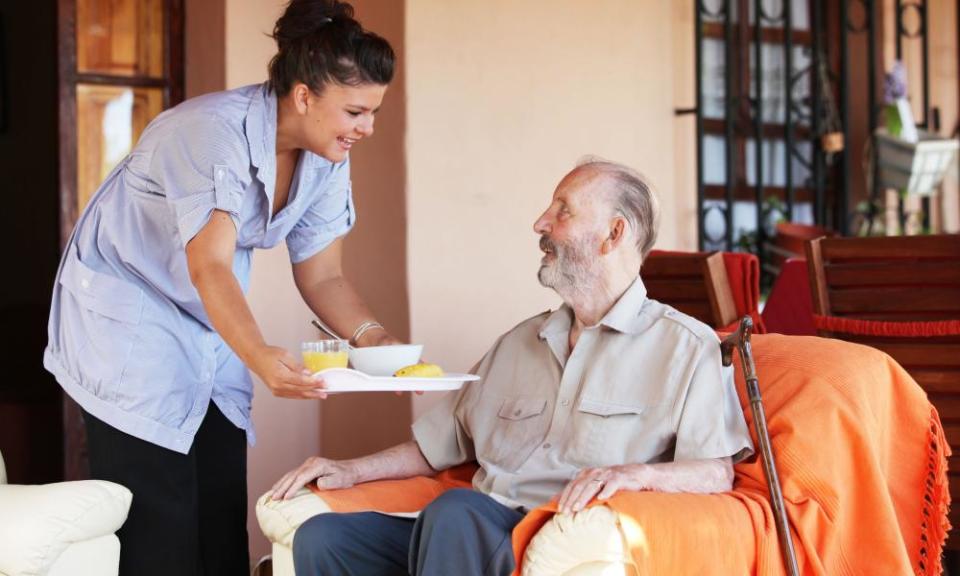We need to protect all frontline workers

I am employed on mental health wards as a support worker, helping people recover from acute problems. It can be a very difficult but also very rewarding job. Covid-19 has not only affected general hospitals but has also had a huge impact on mental health facilities, which are more often run by a skeleton staff, as workers have had to self-isolate. On top of this we are also dealing with mental health patients infected with Covid-19, mostly with mild symptoms of the virus. As we are not considered to be on the frontline, we are not equipped with proper personal protective equipment. We get a basic face mask, gloves and a flimsy apron.
Last Tuesday I received a letter that said I should self-isolate even from my own family due to being in a high-risk group. I opened it on returning from a 13-hour shift on a ward where there were patients with suspected Covid-19 – wearing a basic face mask, gloves and apron. We waited three weeks for those masks. Their protection efficiency is 28%. Still, I regret nothing as those patients, many with severe mental health problems, need someone to look after them.
The letter came a bit too late. I did not expect it to come at all as I did not suspect I was in a high-risk group. I naively expected proper PPE. Now I can only count on my luck.
Name and address supplied
• I read with interest and concern the letter from the parents of the trainee doctor and the letters about nurses (2 April). I am making a plea that, in among all the anger and frustration about the scandal that is the lack of PPE, we don’t forget social workers. My son is a social worker in child protection – working with some of the most vulnerable and at-risk young people in the UK. He is still compelled to do home visits that take him into unregulated environments. His last visit was to a small two-bedroom flat in an impoverished part of London, housing a family of seven. Two members of the household sleep in the living room where the meeting took place. He has been given no advice (even after asking for it), no protection protocols and no PPE.
This is a further scandal of neglect. We are too ready to make social workers the perennial scapegoats when things go wrong. Please let’s not ignore them now when they are looking after those young people most at risk. If children are all of our future, then we must support those who care for them on our behalf – emotionally and practically. All frontline workers should have PPE.
Name and address supplied
• It’s good that you draw attention to the crisis in care homes (UK care home staff ‘at breaking point’ as coronavirus cases rise, 31 March), but very little attention is given anywhere in the media to carers, like my daughter, who are not attached to care homes but spend all the unsociable hours God sends visiting older people in their own homes, carrying out very intimate and personal tasks without any protective equipment except their usual gloves and hand gel. And I won’t mention the rates of pay, the zero-hours contracts and the worry about what happens if they become ill, financially and in relation to the risks of cross-infection.
Maureen Stephenson
Shilbottle, Northumberland
• Much has been made of the tragic deaths of doctors and nurses from Covid-19, but very little of those of other healthcare professionals. Two healthcare assistants have succumbed to the illness (Coronavirus deaths of two nurses lead to calls for more protection, 3 April). Healthcare is multidisciplinary. The least well remunerated have the most frequent, intimate and currently dangerous contact with patients. Their passing should be better acknowledged.
Will Gelson
Stapleford, Cambridgeshire
• Join the debate – email guardian.letters@theguardian.com
• Read more Guardian letters – click here to visit gu.com/letters
• Do you have a photo you’d like to share with Guardian readers? Click here to upload it and we’ll publish the best submissions in the letters spread of our print edition

